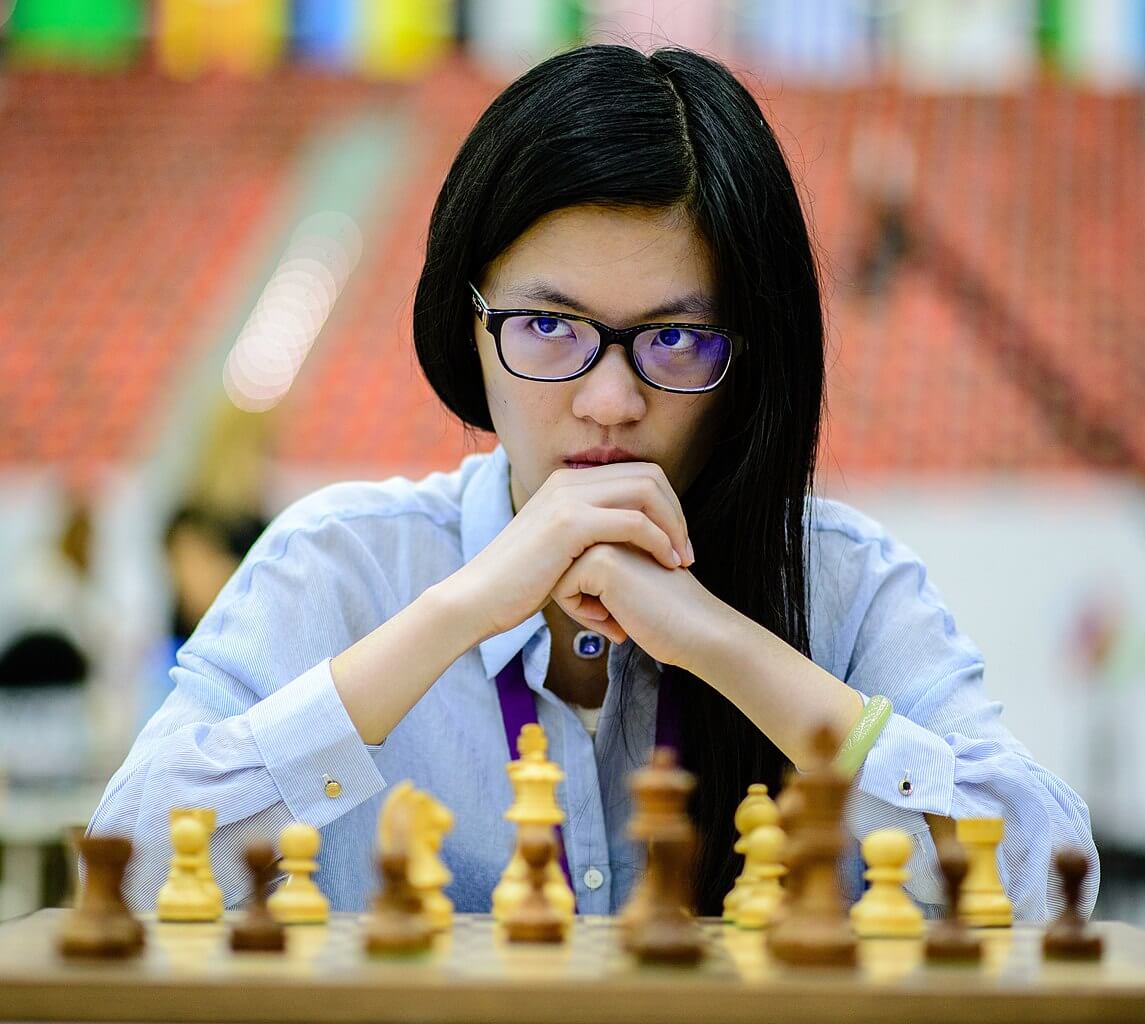As of this writing, there is only one female among the top 100 players
as recognized by FIDE, the international governing body of chess. That
woman is Yifan Hou (pictured) , who currently is rated at 2658 FIDE and is ranked number 84th among all FIDE ranked players.
“… we show that 96 per cent of the observed difference would be
expected given the much greater number of men who play chess. There is
little left for biological or cultural explanations to account for.”-
Bilalić, Smallbone, McLeod, Gobe, 2008
Historically women have simply not been represented well among the top
100 players in the world. Judit Polgar, the Hungarian
Grandmaster, was at her peak in 2005, with a FIDE world ranking of 8th
among all players. Polgar retired from active play in 2015.
“We are capable of the same fight as any man, and I think during the
decades that I actively played chess I proved it as well. It’s not a
matter of gender, it’s a matter of being smart.”
-Judit Polgar, Time Magazine April 20th, 2015.
Why has it been the case that so few women crack the
upper echelons of the chess world? Why does it continue to be the
exception rather than the rule that women populate the top 100
rankings? Does it even matter as to why?
Cultural or biological factors have been used as ways of explaining
this phenomenon. These explanations, whether bolstered by scientific
research or expressed as matters of anecdotally-informed opinion, have
been used both in a dismissive way toward women, deeming them inferior
in some way, or as a way to support women who are thought by some to
be at a disadvantage.
Nigel Short, Gary Kasparov, Bobby Fischer and many other men in the
chess community have publicly voiced their disdain for women’s ability
to compete at a high level in the chess world.
“All women are inferior to men.” ~ Garry Kasparov
“Girls just don’t have the brains to play chess” – Nigel Short
Women, it has been claimed, are just “not wired” for chess.
Alternately some argue that there is somehow a cultural bias in play,
preventing women from reaching the top levels.
A paper from December of 2008 (https://doi.org/10.1098/rspb.2008.1576)
strangely titled “Why are (the best) women so good at chess?” attempts
to explain the phenomenon of women’s poor representation within the
elite ranks of chess purely by statistics, saying that it is 96%
attributable to numbers. The authors are Bilalić, Smallbone, McLeod,
and Gobe.
The paper postulates that the answer is straightforward – that is a
matter of pure statistics and that the same kinds of results would be
expected in any other area of endeavor.
From my reading, the answer seems anything but straightforward. I am left with the notion that perhaps it is not important why the numbers are the way they are. The chess community is constantly growing and changing in terms of women’s level of involvement. This is a worldwide phenomenon. Hopefully attitudes about women in chess are also evolving.
I remember playing a young girl, who was 9 at the time, in the mid 1990s. I had beaten her the previous two games I had played her in prior tournaments. But in this game, she had clearly done her homework while I had not. We were playing the same line of the Benko Gambit as the previous outing, but things quickly went off the rails for me in this game. She was improving, and I was just playing another tournament game. Her name was Irina Krush, who went on to earn many titles, including Grandmaster. She is still ranked number one female player in the US. Surely she and many other strong female chess players are looked up to by school kids as examples of what can be achieved.

